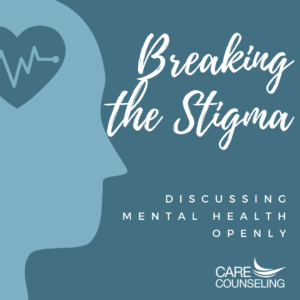Breaking the Stigma: Discussing Mental Health Openly
 Mental health is an integral part of our overall well-being, yet it has been a topic shrouded in stigma and silence for far too long. The notion that discussing mental health is taboo or uncomfortable has perpetuated misconceptions, discouraged individuals from seeking help, and contributed to a culture of secrecy around mental well-being.
Mental health is an integral part of our overall well-being, yet it has been a topic shrouded in stigma and silence for far too long. The notion that discussing mental health is taboo or uncomfortable has perpetuated misconceptions, discouraged individuals from seeking help, and contributed to a culture of secrecy around mental well-being.
Understanding the Stigma
The stigma surrounding mental health is the result of deeply ingrained misconceptions, stereotypes, and discrimination that have persisted for generations. Some common stigmatizing beliefs include:
- Weakness: The false idea that seeking help for mental health issues is a sign of weakness. Reaching out for support requires tremendous strength and courage.
- Lack of Understanding: A lack of understanding about the nature of mental health conditions has contributed to the stigma. Many people still believe that conditions like depression or anxiety are just “in your head” or can be overcome by sheer willpower.
- Fear of Discrimination: Fear of being labeled or facing discrimination can deter individuals from seeking help or openly discussing their mental health struggles.
- Self-Stigmatization: Individuals who experience mental health issues may internalize the stigma, feeling shame and guilt about their condition.
The Consequences of Stigma
The stigma around mental health has far-reaching consequences. It prevents people from seeking timely help and treatment, which can exacerbate their conditions and lead to a higher risk of complications, including self-harm and suicide. It can also hinder individuals from being open with loved ones, impacting relationships and overall well-being.
In a broader sense, stigma has prevented society from allocating adequate resources and funding for mental health support and research. It has contributed to the insufficient attention given to mental health in healthcare systems and government policies.
Why Open Discussions Matter
Breaking the stigma surrounding mental health and discussing it openly is not just a matter of social justice; it’s essential for the mental well-being of individuals and society. Here’s why these discussions are so important:
- Encourages Seeking Help: Open discussions about mental health create an environment where individuals feel safe and comfortable seeking help when they need it.
- Reduces Self-Stigmatization: When people see others openly discussing mental health, it reduces feelings of shame and self-stigmatization.
- Promotes Understanding: Open conversations increase understanding and empathy. People begin to recognize that mental health issues are real and impact millions of lives.
- Fosters a Supportive Environment: Open discussions create a culture of support where individuals can lean on each other for help, guidance, and understanding.
- Advocates for Change: When more people talk openly about mental health, it sends a powerful message to governments, institutions, and healthcare providers that change is needed in the way mental health is addressed.
How to Break the Stigma
Breaking the stigma surrounding mental health is a collective effort. Here are some ways to contribute to open discussions and help create a more accepting and empathetic society:
- Share Your Story: If you’ve experienced mental health challenges, consider sharing your journey. Your story can inspire others to seek help and reduce feelings of isolation.
- Listen Non-Judgmentally: Be an empathetic and non-judgmental listener when someone opens up about their mental health. Provide a safe space for them to share their thoughts and feelings.
- Educate Yourself: Understanding mental health conditions and the challenges people face is crucial. Educate yourself about different conditions, treatment options, and available resources.
- Challenge Stigmatizing Language: Be mindful of the words and phrases you use. Challenge stigmatizing language and stereotypes when you encounter them.
- Support Mental Health Initiatives: Support organizations and initiatives that are working to break the stigma around mental health. Volunteer, donate, or get involved in advocacy efforts.
- Advocate for Change: Advocate for mental health awareness and improved services in your community and country. Engage with local and national policymakers to push for better mental health support.
By fostering open discussions and changing the narrative around mental health, we can create a more empathetic and accepting society where individuals feel safe and supported when seeking help for their mental well-being.
Breaking the stigma is not the responsibility of one person or group; it’s a collective effort that requires understanding, empathy, and advocacy from all of us.



























